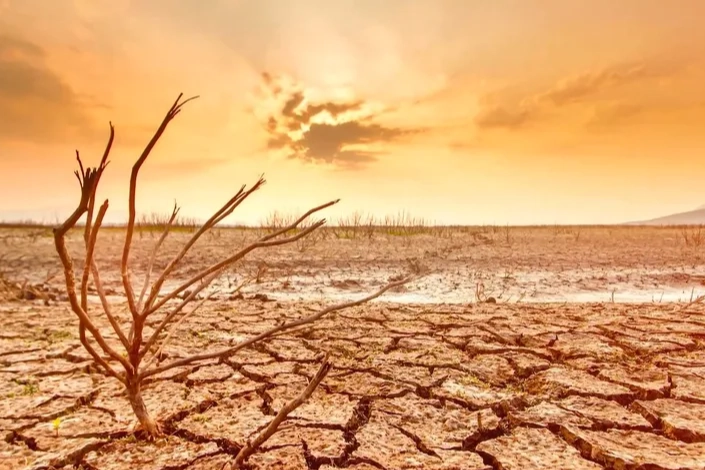Afire Sever, General Director of Water Management at the Ministry of Agriculture and Forestry, said, 'There will be an increase in the number of hot days due to the effects of climate change. We will experience a decrease in the number of snow-covered days.'

Turkey is among the countries experiencing water stress due to climate change. The Ministry of Agriculture and Forestry is taking various steps to protect, enhance, and use water efficiently in terms of both quantity and quality. In addition to determining necessary policies and strategies, the protection of water is also aimed at through strong legislation. Water, which ranks first in importance for people and biodiversity, is also crucial for the continuity of life. Afire Sever, General Director of Water Management at the Ministry of Agriculture and Forestry, stated in an interview with the İHA reporter that water management strategies are of great importance and steps are being taken in this direction.
'There will be an increase in the number of hot days'
Sever, General Director of Water Management, emphasized the need for efficient use of water under changing climate conditions, noting that Turkey is dominated by a semi-arid climate, saying, 'This is a country that will be most negatively affected by these changing climate conditions. We identified these impacts with models in 2016. How will our country be affected in 2030, 2050, 2070, and 2100 under changing conditions? With the effects of climate change, there will be an increase in the number of hot days. We will experience a decrease in the number of snow-covered days. Along with this, we will face floods and droughts due to sudden and severe rainfall.'
'We need to increase our adaptation capacity'
Sever stated that we are going through a period where floods and drought are occurring simultaneously, saying, 'This is another negative impact of climate change on us. We need to develop measures to address this. We cannot distance ourselves from the reality of climate change. We need to increase our capacity for adaptation and resilience. How can we do this? By using water efficiently. We are not removing water from our lives; we are simply using less water to achieve the same service or product.'
'You will reuse treated wastewater'
Sever emphasized the need for proper water management, stating, 'You will reuse treated wastewater. You will transition to systems that can harvest rainwater. You will reduce the flow of water in your sinks by using pressure-reducing systems. Even with simple methods, you will use water efficiently, thereby consuming less water.'
'Transitioning to xeriscaping is an important issue' Sever noted that with the measures taken in various sectors, water savings should be maximized, stating, 'For example, in the tourism sector, you can achieve up to 50% water savings. For instance, lawns. You need to transition to xeriscaping in your green areas. It consumes less water, requires less frequent watering, and is more drought-resistant. Transitioning to xeriscaping is an important issue.'
'Watering after sunset is important'
Afire Sever, General Director of Water Management, also noted that treated wastewater can be used for irrigating green areas, and added: 'It is very important to irrigate with rainwater harvesting. Another important point is to apply irrigation at night, which also applies to agricultural irrigation. Due to the effects of climate change, we are experiencing extreme heat. Therefore, if you irrigate your landscaping and green areas or agricultural fields during the day, you lose more than 40% of the water due to evaporation. Hence, watering before dawn or after sunset is crucial for us. Implementing such a practice, believe me, does not require any financial resources.'
'By determining the irrigation interval according to your product, you achieve efficient water use'
Sever emphasized that watering agricultural products at night significantly reduces evaporation rates, stating, 'For example, if you have an apple orchard, four irrigations may be sufficient, but with pears, you can achieve maximum yield with three irrigations. Excessive irrigation could even cause rotting in pears. Therefore, if you know the characteristics and water needs of the crops you grow, it means you are using water efficiently. In agriculture, you can reduce water use by switching to certain irrigation models or by determining the irrigation interval according to your product with night irrigation, thus achieving efficient water use.'